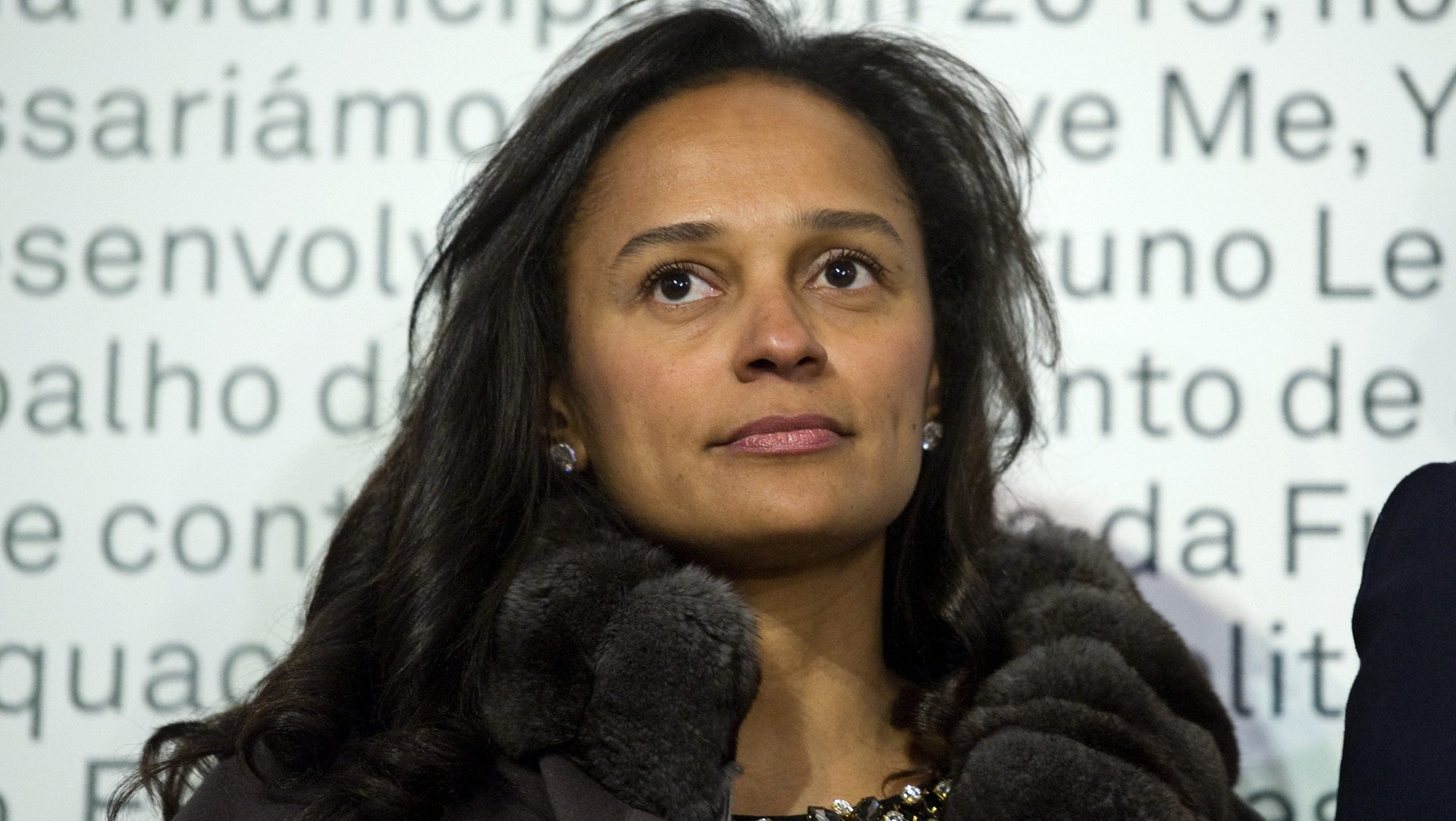Angola has charged Africa’s richest woman with embezzlement and money laundering
State prosecutors in Angola have indicted Isabel dos Santos, Africa’s richest woman and daughter of Angola’s former president, on fraud-related charges for mismanaging and embezzling funds during her 18-month stint as chair of the state’s oil firm, Sonangol.


State prosecutors in Angola have indicted Isabel dos Santos, Africa’s richest woman and daughter of Angola’s former president, on fraud-related charges for mismanaging and embezzling funds during her 18-month stint as chair of the state’s oil firm, Sonangol.
In a press conference on Wednesday, Angola’s attorney general, Helder Pitta Gros, said the state was formally charging dos Santos in the criminal lawsuit with “money laundering, influence peddling, harmful management…forgery of documents, among other economic crimes.” The government is now trying to recover $1.1 billion from dos Santos and her husband, Sindika Dokolo.
The indictment comes only days after the Luanda Leaks investigation, led by the International Consortium for Investigative Journalists and the Paris-based Platform to Protect Whistleblowers in Africa along with 36 media houses including Quartz, revealed how dos Santos and Dokolo siphoned public funds from Angola to tax havens abroad.
But the pair didn’t act alone. The leaks, which comprised of over 700,000 confidential financial and business records, also uncovered a sprawling network of notable Western bankers, lawyers, accountants and consultants, including PwC and Boston Consulting Group, whose services helped dos Santos to amass and conceal her fortune, now estimated by Forbes at $2.1 billion.
On the same day the charges were publicly announced, a Portuguese banker implicated in the corruption case, Nuno Ribeiro da Cunha, was found dead at his house in Lisbon. Da Cunha was head of private banking at EuroBic, the Portuguese bank where dos Santos was a main shareholder; (the bank ended its relationship with dos Santos on Monday). He also managed Sonangol’s account at the bank. Da Cunha died in the wake of the Bank of Portugal’s investigation into Eurobic’s procedures against money laundering.
While several investigations have attributed the roots of dos Santos’s fortune to strategic deals her father, José Eduardo, made during his 38-year presidency, the billionaire has maintained she is a self-made entrepreneur. She has repeatedly denied the state’s allegations against her, insisting she has “always operated within the law” and all her “commercial transactions have been approved by lawyers, banks, auditors and regulators.”
In addition to the denials, dos Santos recently signed two contracts worth $2.2 million over a year with Sonoran Policy Group, a DC-based lobbying firm with close ties to the Trump administration, and infamous for representing dubious clients, including arms dealers.
Firms affiliated with dos Santos are reeling from the aftermath of the Luanda Leaks. Portugal’s market regulator, the Portuguese Securities Market Commission, has launched open inquiries into the two companies where dos Santos holds stakes, oil company Galp Energia and telecommunications firm, NOS. The head of PwC’s tax advisory team for Angola and Portugal, Jaime Esteves, stepped down.
Dos Santos currently lives abroad and Angola’s Attorney General Pitta Gros has vowed to use “all possible means” to bring her back to the country to face justice, including enlisting the help of Interpol.
Angola—a country ranked 149 out of 189 countries on the Human Development Index—rose seven points in Transparency International’s recently released 2019 Corruption Perceptions Index and was tagged a “significant improver” owing to current president Joao Lourenço’s intent to crackdown on corruption. Last month the state recovered more than $5 billion in stolen assets.
Sign up to the Quartz Africa Weekly Brief here for news and analysis on African business, tech and innovation in your inbox